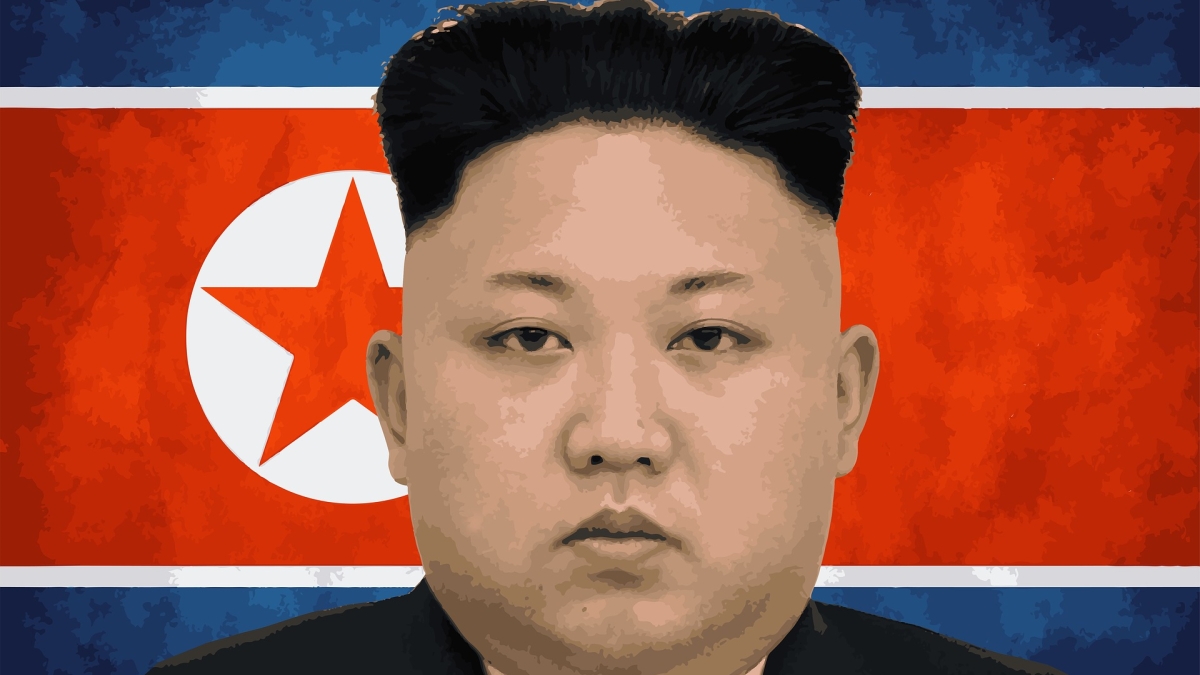A peace treaty is potentially in the works for North and South Korea, and leaders say they plan to denuclearize the Korean Peninsula within a year. They are also pursuing talks with the United States to put an end to the war that has continued for more than half a century, providing a reason for optimism.
President Donald Trump is taking credit for imposing his “maximum pressure” policy, which includes tough new sanctions on North Korea. He claims sanctions have finally brought their leader, Kim Jong Un, to the negotiation table.
To find out whether that claim has merit, ASU Now consulted Scott Silverstone, a former U.S. Naval officer, an ASU Senior Future of War Fellow with the Center on the Future of War and the author of a forthcoming book, “From Hitler’s Germany to Saddam’s Iraq: the Enduring False Promise of Preventive War.”
Scott Silverstone
Question: President Trump believes tough sanctions are bringing North Korea to the table with talks of freezing their nuclear program. Do you believe that sanctions brought them to this point?
Answer: Decision making within the North Korean government remains a mystery to outside observers, so it’s impossible to say with confidence how much impact economic sanctions have had on the regime’s behavior. In recent years, North Korean President Kim Jong Un has been pursuing dual priorities — the development of a potent nuclear weapons capability and economic growth to satisfy the expectations of a network of North Korean elites that his regime’s internal stability depends on. Recently, he announced that his nuclear goals have been met, so it’s now time to prioritize his economic objectives.
Sanctions relief is clearly an important factor for growing the economy. I’m not convinced, however, that Kim Jong Un would have abandoned his nuclear ambitions just to find relief from the “maximum pressure” campaign. For years the Kim regime has bluntly declared that its survival depends on the ability to deter an American attack. We have heard repeated references to the fate of Saddam Hussein of Iraq and Moammar Gadhafi of Libya from the North Koreans, and their determination to avoid a similarly violent end through the deterrent effect of a nuclear arsenal. It is no surprise that Kim Jong Un embraced diplomatic engagement after North Korea launched a missile that is believed to have a range capable of hitting dozens of American cities.
Q: Sanctions don’t seem to be foolproof, however. It has been said that Russia and China are violating the U.N.’s international sanctions. What can be done about this violation currently and again in the future?
A: Some of the best research on this question has uncovered a sophisticated network linking North Korean “state trading companies” and private Chinese companies, as well as foreign companies operating in China, which has provided North Korea a way to procure a range of foreign products, including key technical components for their nuclear weapons program. Interviews with North Korean defectors who previously worked for these companies have convinced John Park of Harvard University and Jim Walsh of MIT that the sanctions have not only been largely ineffective, they have provided an incentive for creativity by North Korean agents.
Disrupting these networks is a worthy policy goal, but success runs through Beijing and the Chinese firms doing business with North Korea. Park and Walsh note an interesting option: International sanctions have spurred the development of a “compliance culture” among Chinese businesses who increasingly fear the negative impacts to their reputations and their ability to do business with American and other foreign firms if they are caught in these relationships with North Korean state trading companies.
Q: In your opinion, do sanctions against other countries work, and when are they most effective?
A: The dominant view among scholars that have been studying economic sanctions for decades is that they are largely ineffective as a tool to inhibit weapons proliferation. While there are grounds for skepticism that sanctions will solve this problem, from a policy perspective it seems reasonable to include sanctions as part of a larger international effort to isolate countries that are violating nonproliferation goals. It sends a strong signal that proliferation is illegitimate, and will make it harder for the target states to operate freely within the global economy.
Three important cases demonstrate that sanctions can have an effect on those tempted to pursue illicit weapons. The sanctions regime imposed on Iraq in the 1990s was full of holes, but Saddam Hussein did in fact feel the pressure created by his inability to sell oil freely in the global market. One key motive for his decision not to reconstitute his illicit weapons programs after the Gulf War was to eventually win relief from oil sanctions. In the early 2000s, Libya came in from the cold, opening its suspect weapons sites to international inspectors in order to secure an end to U.N. oil sanctions. And it is impossible to explain Iran’s willingness to agree to cap its nuclear ambitions in 2015 without the immensely painful international sanctions put in place in 2012.
Q: If North Korea does freeze its nuclear program, where do we go from here? How do we keep them in check?
A: This is the million-dollar question: How will the United States react when Kim Jong Un fails to offer complete unilateral nuclear disarmament in the coming negotiations? Kim will likely offer to “freeze” his nuclear activities, which could include foregoing weapons and missile tests for some period into the future. Since this will lock in the status quo, preserving the various nuclear capabilities North Korea possesses today, the United States will likely refuse to consider this a legitimate option. On this point, the talks will deadlock. In the meantime, North Korea will try to use the offer to freeze its nuclear programs to drive a wedge between America and South Korea, and to gain greater support from China for its call for sanctions relief and normalized relations on the Korean peninsula.
Logically, and historically, there is no reason to expect North Korea to denuclearize, since the regime believes its very survival depends on the ability to threaten nuclear reprisal against the United States and its regional allies. While American officials will never openly accept this status quo, the most likely response will be to continue with the United States’ de facto current policy: containment of a nuclear-armed North Korean adversary and deterrence of its potential aggression.
Top photo courtesy of Pixabay
More Law, journalism and politics
Can elections results be counted quickly yet reliably?
Election results that are released as quickly as the public demands but are reliable enough to earn wide acceptance may not always be possible.At least that's what a bipartisan panel of elections…
Spring break trip to Hawaiʻi provides insight into Indigenous law
A group of Arizona State University law students spent a week in Hawaiʻi for spring break. And while they did take in some of the sites, sounds and tastes of the tropical destination, the trip…

LA journalists and officials gather to connect and salute fire coverage
Recognition of Los Angeles-area media coverage of the region’s January wildfires was the primary message as hundreds gathered at ASU California Center Broadway for an annual convening of journalists…



